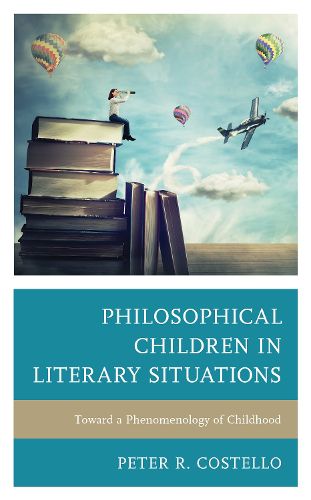Readings Newsletter
Become a Readings Member to make your shopping experience even easier.
Sign in or sign up for free!
You’re not far away from qualifying for FREE standard shipping within Australia
You’ve qualified for FREE standard shipping within Australia
The cart is loading…






Philosophical Children in Literary Situations: Toward a Phenomenology of Education argues that both phenomenology and children’s literature can assist one another in understanding the lived experience of children. Through careful readings of central figures in the phenomenological tradition, including Husserl, Heidegger, and Merleau-Ponty, Costello introduces both the novice and the scholar to the phenomenological method of describing community, emotion, religion, gender, and loss-experiences that are central to all humans, but especially to the developing child. When turning to literary analysis, Costello uses the phenomenological theory discussed to open up the literary texts of familiar and award-winning children’s chapter books toward new layers of interpretation, reading such novels as To Kill a Mockingbird, A Wrinkle in Time, and Charlotte’s Web to participate in ongoing conversations about childhood perception within children’s literature studies and philosophy for children. Scholars of philosophy, education, literary studies, and psychology will find this book particularly useful.
$9.00 standard shipping within Australia
FREE standard shipping within Australia for orders over $100.00
Express & International shipping calculated at checkout
Philosophical Children in Literary Situations: Toward a Phenomenology of Education argues that both phenomenology and children’s literature can assist one another in understanding the lived experience of children. Through careful readings of central figures in the phenomenological tradition, including Husserl, Heidegger, and Merleau-Ponty, Costello introduces both the novice and the scholar to the phenomenological method of describing community, emotion, religion, gender, and loss-experiences that are central to all humans, but especially to the developing child. When turning to literary analysis, Costello uses the phenomenological theory discussed to open up the literary texts of familiar and award-winning children’s chapter books toward new layers of interpretation, reading such novels as To Kill a Mockingbird, A Wrinkle in Time, and Charlotte’s Web to participate in ongoing conversations about childhood perception within children’s literature studies and philosophy for children. Scholars of philosophy, education, literary studies, and psychology will find this book particularly useful.